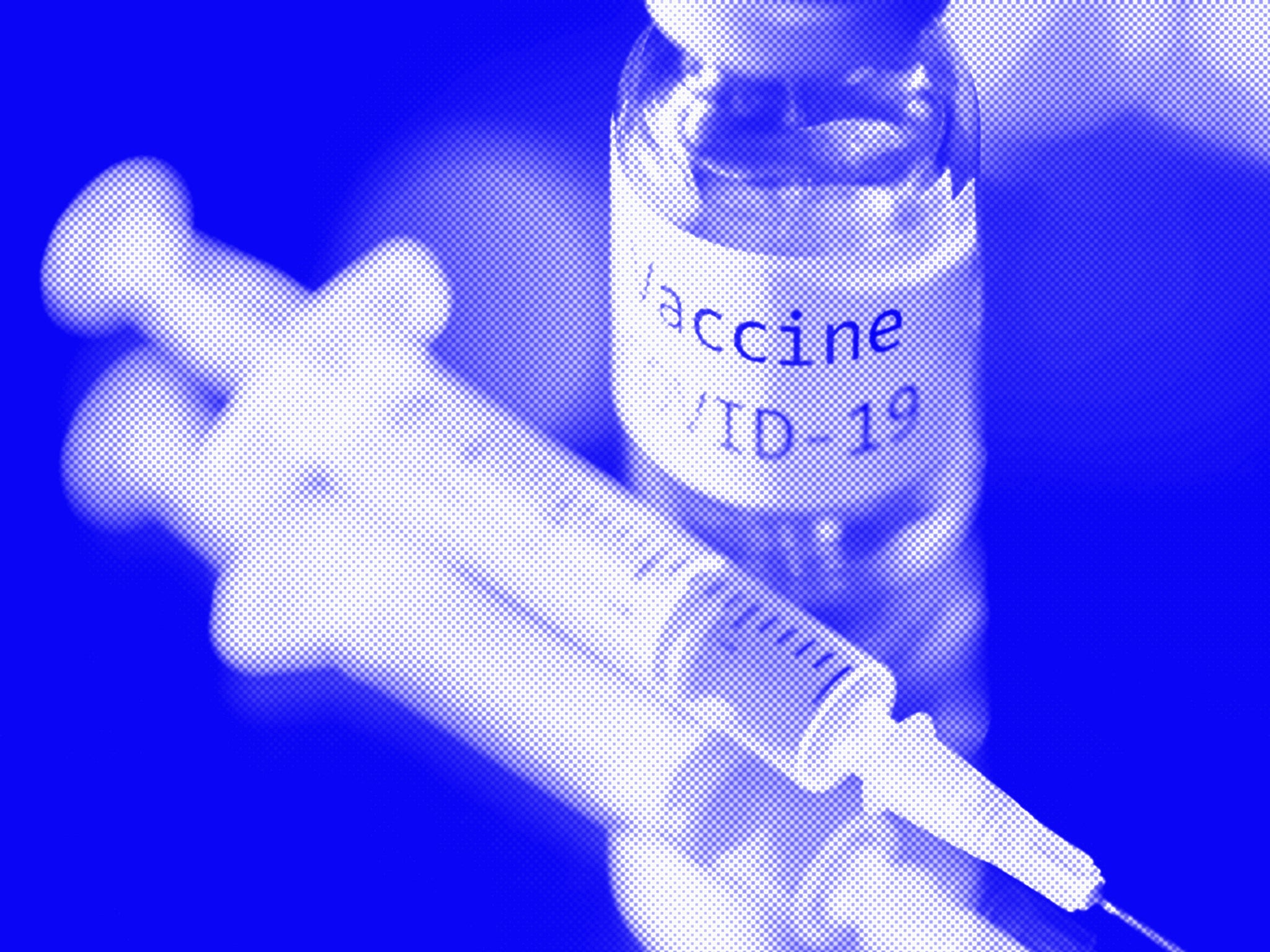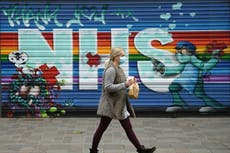If ethnic minorities are more vulnerable to coronavirus, should they receive the vaccine first?
Politicians have done well to avoid anything that might single out, still less stigmatise, any one group during the pandemic – but the imminent start of vaccination presents several dilemmas, writes Mary Dejevsky


In the late spring, when the government was drawing almost as many brickbats for its response to the coronavirus as it is now, I noted two areas where it had nonetheless been successful. One was the speed and amount of economic support on offer; the other, the way in which the hitherto much-maligned universal credit system had worked.
There was, and is, room for criticism of both: some, notably the self-employed, have fallen through the chancellor’s net, and the huge rise in universal credit claimants has highlighted the meanness of many UK benefits, including sick pay, compared with the income-related benefits common in much of continental Europe. It also remains true that the UK has one of the highest per capita death rates from the virus in the developed world – for reasons yet to be fully explained.
Now, though, there is another area where, it seems to me, our beleaguered politicians deserve more than a modicum of praise, and this is in the efforts they have made to avoid stigmatising any individuals or groups, especially black and minority ethnic (Bame).
A tiny breach in the wall of caution was made at the Downing Street briefing on Monday, when General Sir Gordon Messenger – head of operations for the government’s community testing programme – said that mass testing, such as conducted in Liverpool, was on the way out. In future, he said, testing could be “tailored” to the needs of particular communities and “might be geography-specific or ethnicity-specific”. This was unusual. All mention of ethnicity has generally been avoided.
Great care was taken when Leicester became the first city to be placed in a special lockdown not to mention any ethnic angle. Only Channel 4 News initially broached the subject in a series of admirable reports from the city’s streets. The same channel reported last week from Bradford on the burial of 10-year-old Fehzan Jamil, one of the youngest to have died from Covid-19 in the UK, and ended with pictures of the cemetery studded with fresh graves and wreathed in flowers.
It has been noted, though generally without comment, that Slough is almost the only section of a county to be singled out for tier 3. The whole of Kent has been placed in tier 3 (prompting loud complaints from, among other places, Tunbridge Wells). One reason why Sadiq Khan, the mayor of London, may have insisted throughout that London has to be treated as one – and a reason why the government may have agreed – is that the incidence of infections and hospitalisation diverges markedly between “rich” and “poor” boroughs, which also correlates with ethnic make-up.
Nationally and locally, the UK has also resisted the successful approach of some Asian countries, such as South Korea and Taiwan, who have “locked down” only those individuals infected. In the more diverse UK, this could have resulted in something resembling ethnic profiling. Mostly, the line that, as a country or county, “we are all in this together”, has just about held.
In fact, there was much more open discussion of the ethnic aspects of the pandemic in the UK earlier in the year, when the much higher mortality rates among some ethnic minorities first became clear. Many studies later, it is now well established (by the ONS, among others) that men of black African and Bangladeshi backgrounds are worst affected, with mortality rates more than twice as high as those for white people.
The most contentious question now, though, is why. Is there something in people’s ethnicity that makes them more susceptible to the virus, or is it that people in the worst-affected groups tend to work in low-paid, public-facing jobs, such as security, taxi-driving, food retail and healthcare? Could it reflect living conditions or culture – more people living together in multi-generation households, for instance, or less compliance with social distancing or mask-wearing? Or could it be that the incidence of underlying conditions, such as diabetes and respiratory ailments, is higher? Is it even possible to separate the ethnic from economic and other factors?
One view, that fed into the Black Lives Matter movement, is that, even when adjusted for every known variable, Bame people are still more likely to die from coronavirus, and that the difference can only be explained by racism.
At which point the argument risks taking some perilous paths, which, again, politicians and others have so far resisted pursuing. One concerns employment. If, say, people of black and South Asian background are more likely to become seriously ill from coronavirus, should they be given special protection when working in sectors where they might be most at risk, or barred altogether? Could employers start recruiting people deemed less of a risk? At what point would protection become discrimination?
The imminent start of vaccination presents several dilemmas. If black and South Asian ethnic groups are more vulnerable to the virus – for whatever reason – should they be given priority? Asked a week or so ago, whether Bame people should be fast-tracked for vaccination, Jonathan Van Tam, the most media-savvy of the government’s scientific advisers, neatly sidestepped the question by saying that people with underlying medical conditions were already prioritised, and many Bame people would fall into that category, but there was no plan for ethnicity alone to be a criterion.
Suggesting that people from certain ethnicities might be given priority presented a trap for at least two reasons. First, it could cause resentment among the white population, if people felt they were falling down the list. Second, and perhaps the bigger issue, is the malign spectre of history and the record of the United States, in particular, of having exploited black people for medical trials. The notorious Tuskegee syphilis study, which lasted from the 1930s into the 1970s and was the subject of an apology from President Bill Clinton, is perhaps the most notorious example.
There is already evidence that black Britons are significantly more suspicious of vaccination against coronavirus than whites: a recent YouGov survey showed that 37 per cent of Bame Londoners said they were “very unlikely” or “fairly unlikely” to have the vaccination, compared with just 17 per cent of white Londoners. And if this were to translate into actual numbers, what then? How would white people react if they felt that the protection of the whole city, or even the whole country, was being jeopardised by the refusal of a minority?
As I say, the government, and politicians across the spectrum, have done well so far to have avoided anything that might single out, still less stigmatise, any one group during the pandemic. But there have been two recent warnings of how close to the surface resentments and tensions may lie.
The first comes from that supposedly kinder, gentler, land of Canada, where Dr Jean-Robert Ngola, a Conogolese-Canadian GP, became a pariah in his community after it became known that he had contracted the virus and could be “patient zero” in the hitherto Covid-free town where he lived in the Maritimes. He appears to have caught it after driving to collect his daughter in Montreal, a journey that may or may not have been against the rules.
The second, closer to home, is the rabid response on some sections of social media to Sainsbury’s Christmas television advert, featuring a black family. Other supermarket chains responded with commendable soldarity, but racism lurks out there. With the ethnic dimension of this pandemic well known, ministers, mayors and everyone entrusted with any role in leadership needs to proceed with care.
Join our commenting forum
Join thought-provoking conversations, follow other Independent readers and see their replies
Comments




Bookmark popover
Removed from bookmarks